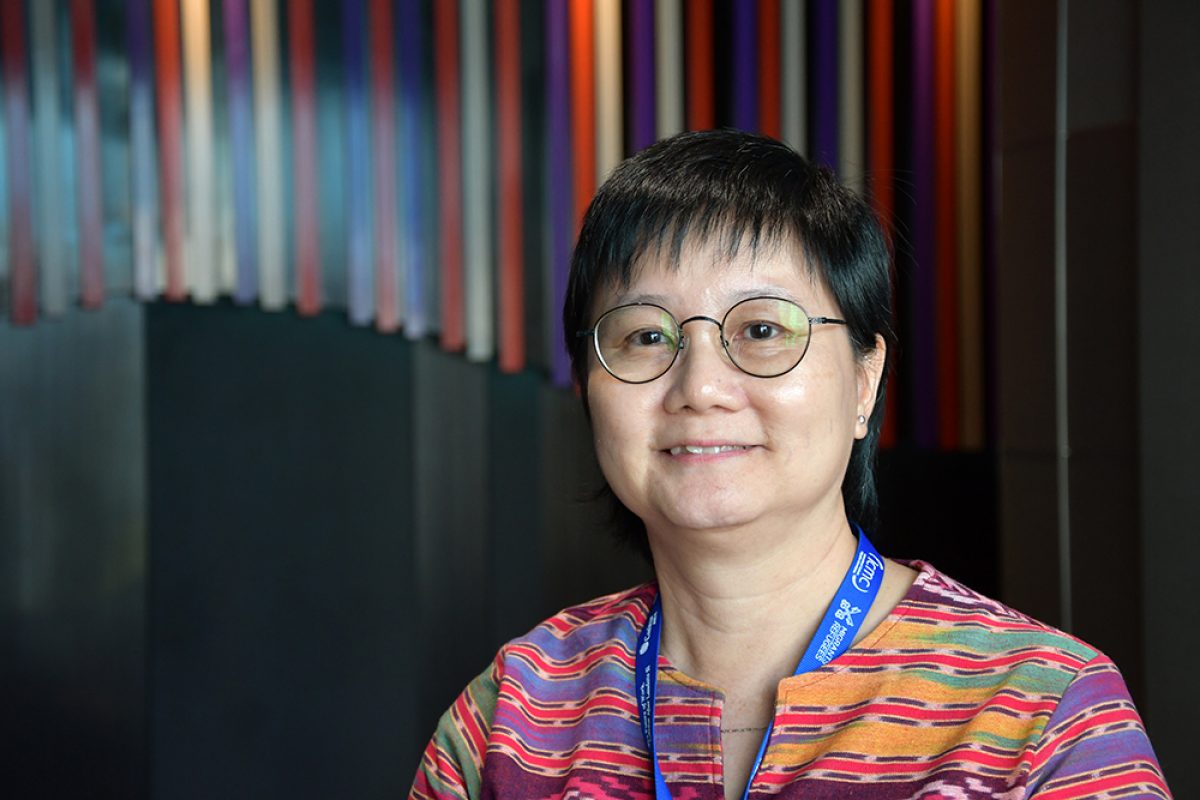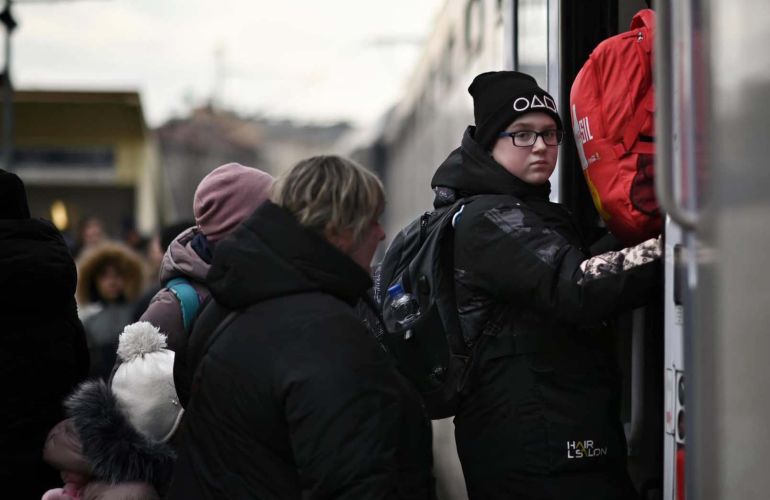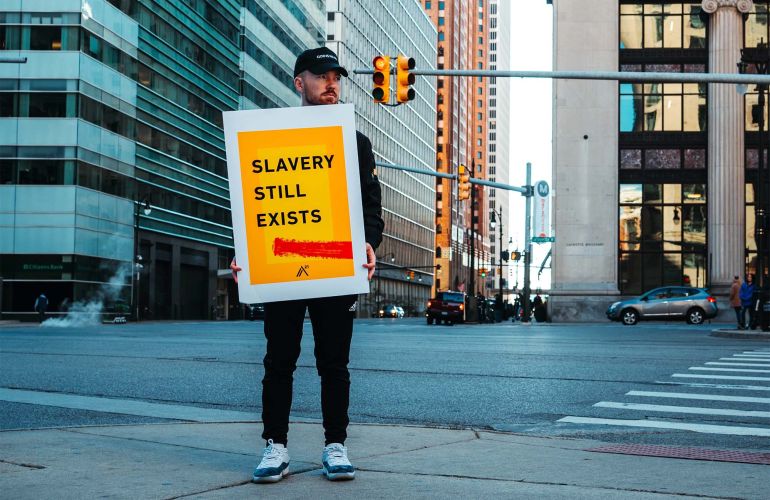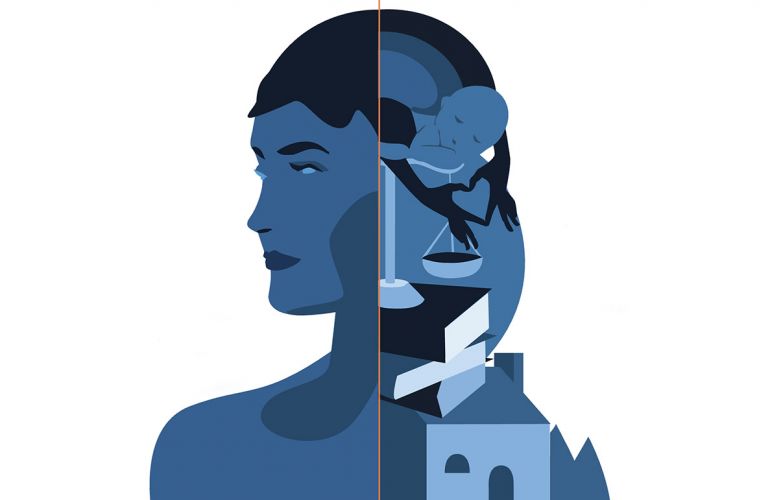Human Trafficking in Asia-Pacific: ICMC and other Church Responses

The number of cases of human trafficking is on the rise and its victims originate disproportionately from the Asia-Pacific region. Migrants are especially vulnerable to trafficking. Members of the ICMC Asia-Oceania Working Group presented their efforts at the group’s annual meeting and shared insights on how to prevent human trafficking and protect survivors.
Human trafficking is the trade of people for forced labor, sexual slavery or commercial exploitation. Over 40 million people are trafficked worldwide and nearly two-thirds of modern-day slaves originate from the Asia-Pacific region.
Early in December 2019, experts and grassroots workers shared their experiences on how to prevent and assist survivors of what Pope Francis described as a “crime against humanity”. The exchange was part of the International Catholic Migration Commission’s Asia-Oceania Working Group’s annual meeting in Bangkok, Thailand.
Ms. Nathalie Hanley from the International Organization for Migration introduced the topic by presenting its current trends. Women and girls, as well as youth and young adults, are most vulnerable to become the prey of traffickers. Seventy percent of detected victims are female and over two-thirds are below the age of 30.
Migrants also are at risk. Almost one-quarter of modern-day slaves are migrants and people on the move make up nearly three-quarters of those forced into sexual exploitation.
In the Asia-Pacific region, modern slavery is often linked to debt bondage and migration. Because of the high administrative costs and barriers to regular migration faced by those seeking decent work opportunities, many migrants accumulate loans often amounting to many years of their annual salary, or they are compelled to seek help from smugglers to reach their destinations. As a result, they are forced into bonded labor until they can repay their debts. Forced labor is mainly present in the sectors of domestic work, construction, manufacturing and agriculture, forestry and fishing.
Ms. Hanley explained that human trafficking is a highly profitable criminal sector. In the Asia-Pacific region alone, human trafficking amounts to 52 billion U.S. dollars a year and a trafficker can make as much as 20,000 U.S. dollars on a single victim. Corruption and the low risk of prosecution by States also are co-factors in such crimes.
Countries attempting to address human trafficking face many challenges. Victims are very difficult to identify and often unaware that they are being trafficked. Labor inspectors don’t have access to private homes or international waters, where trafficking is prevalent. Trafficked persons often don’t know their rights or trust authorities and they fear retaliation if they come forward.
The Church’s Response
In response to the growing risks faced by migrants, the Vatican’s Migrants and Refugees Section introduced the Pastoral Orientations on Human Trafficking in early 2019. These aim to help Church-inspired agencies, religious orders, and local Church communities and members, to understand and fight human trafficking. The orientations were developed with input from Catholic organizations such as the Talitha Kum Network and ICMC.
Ms. Naoko Maruyama from the Migrants and Refugees Section presented the orientations as well as outcomes of the Vatican’s April 2019 Conference on human trafficking. The conference attracted some 200 participants from Catholic organizations and anti-trafficking experts who shared experiences and effective practices. They prepared 695 proposals to help end human trafficking.
Ms. Theresa Symons from the Congregation of Our Lady of Charity of the Good Shepherd presented their work in 19 countries of the Asia-Pacific region. The mission of the Sisters of the Good Shepherd to protect women and children has allowed them to acquire decades of experience in hosting survivors of trafficking at the shelters they administer.
“It is not enough to give them food and shelter,” said Ms. Symons. “We need to understand why they have been trafficked.” Understanding is essential to the congregation’s preventive work, which includes education programs on safe migration and trafficking in persons, birth registration programs, vocational training and research.
The congregation also works towards increased prosecution of perpetrators. It provides training on human trafficking to law enforcement officials and legal assistance to survivors. “There is no way we can succeed in prosecution if we don’t take care of the victims, because it is the victims who can provide evidence,” said Ms. Symons. And survivors only collaborate with law enforcement when they feel safe.
Finally, she discussed the importance of reaching out to all actors and collaborating with businesses, governments and non-governmental organizations to increase fair recruiting practices.
Mr. Jirawat Chenpasuk presented Caritas Thailand’s work on the issue. Trafficking is mainly present in Thailand in the sectors of prostitution, forced labor and fishing. In collaboration with the Talitha Kum Network, Caritas’ Catholic Network Against Trafficking in Thailand (CNATT) created a structure of 27 members who share information and collaborate in capacity-building.
The network created awareness by spreading information in schools and parishes and through publications. It offers training to government officials, helping them to identify and respond to trafficking. It recently completed training sessions on sea-based trafficking with officers overseeing the fishing industry. In collaboration with private companies and the Thai government, it sets up and runs drop-in centers for seafarers.
The CNATT collaborates with the governments and Catholic organizations of Myanmar, Laos and Cambodia to address transnational trafficking.
Human trafficking was just one of the themes addressed at the ICMC Asia-Oceania Working Group’s annual meeting, held from 1 to 4 December 2019 in Bangkok, Thailand. Other meeting themes included the protection of migrant children and the rights and needs of labor migrants. The Working Group was founded in 2008, as part of ICMC’s global mandate to strengthen collaboration between countries and within the Church on migration-related issues in the region.
This year’s meeting gathered over 70 participants from 25 countries, representing the Holy See, Episcopal Conferences, local civil society organizations, international organizations, and think tanks. The conference was conducted jointly with a High-Level Regional Conference organized by ICMC’s Special Initiative on the Future of Work.
- Learn more about the Congregation of Our Lady of the Good Shepherd’s work fighting human trafficking in this video interview with Ms. Theresa Symons.


